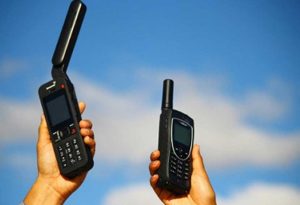State-run BSNL is planning to extend satellite phone services for all citizens in two years that can work at any corner of the country and remain immune to the breakdown of mobile services during natural calamities.

Satellite phones will able to work in any part of the country, even inside flights and ships, as they depend on signals directly from satellites located about 35,700 kms above the earth.
Traditional mobile networks cover around 25-30 kms around towers and can transmit signals to phones placed equal to or below the height of the tower.
BSNL has started satellite phone service using INMARSAT service which will be initially offered to government agencies and later extended to citizens in a phased manner. The service will cover areas where no networks are present and be provided by INMARSAT which has 14 satellites.
Agencies handling disasters, state police, railways, Border Security Force and other government agencies will be given the phones in the first phase. Call rates on satellite phones are expected to be in the range of Rs 30-35 in the first phase when there are only about 4,600 connections in the country.
Satellite phones in India are presently provided by Tata Communications, which inherited the licence from Videsh Sanchar Nigam Limited (now Tata Communications Ltd). The services of TCL will be phased out by June 30, 2017 and all the connections will be transferred to BSNL.
Defence forces did not opt for satellite phones from the foreign operators because of security and espionage concerns. Other security agencies have been demanding for a long time for establishment of a new gateway in the country which can support new generation handsets for land mobile connections.
By Baishakhi Dutta



























